#is will’s experience in the lab based on dr owens more hands off approach?
Explore tagged Tumblr posts
Text
Idc what anyone says I’m scared of this man…
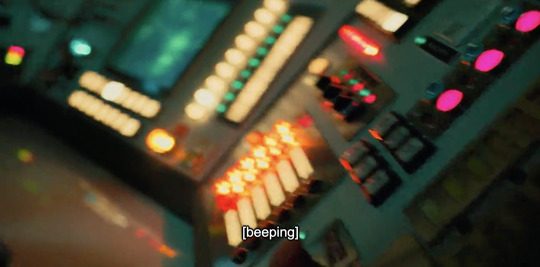
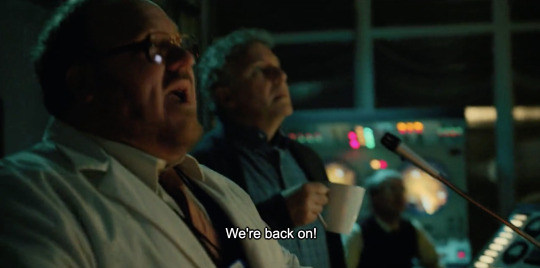

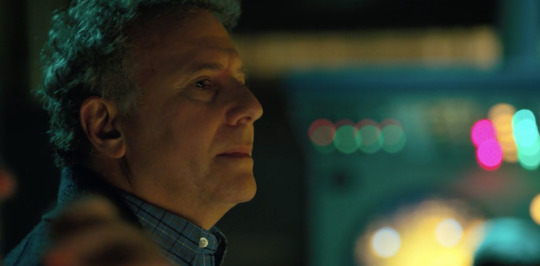
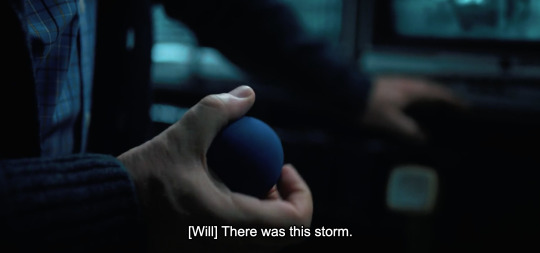
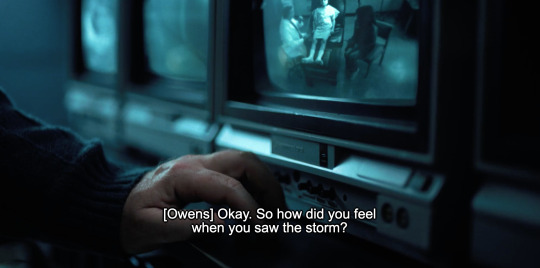
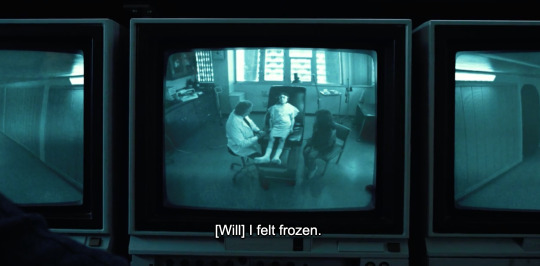
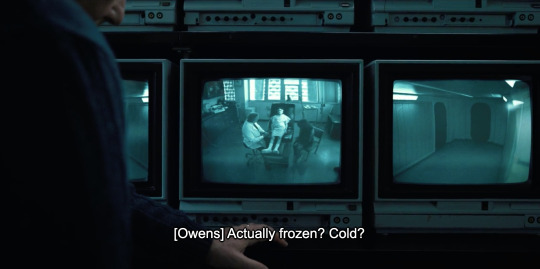
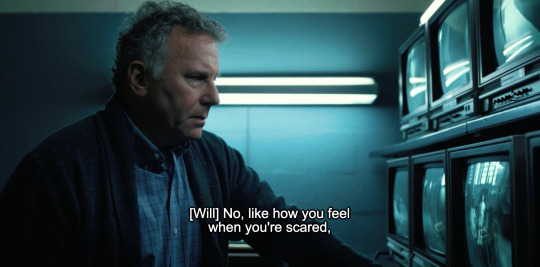
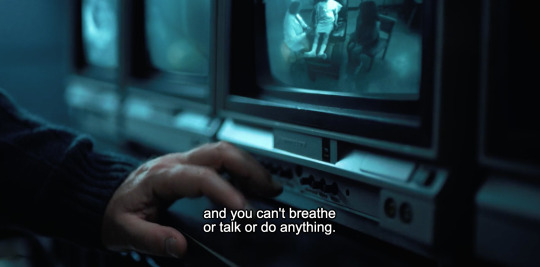
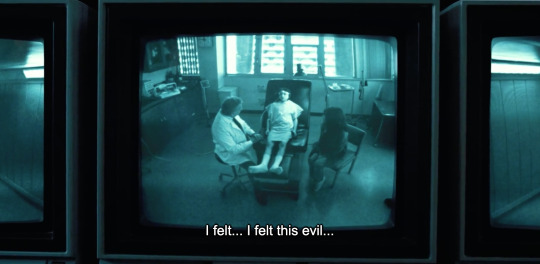
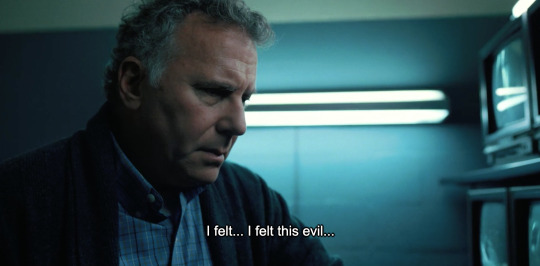
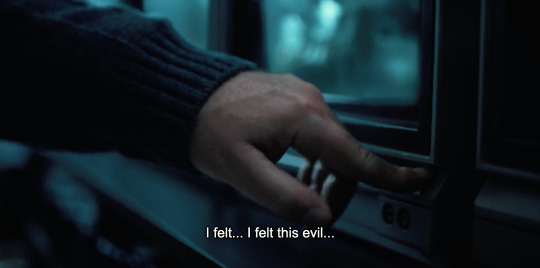
#stranger things#will byers#twelvegate#??#byler#Hawkins lab#owens is will’s very own brenner?#is will’s experience in the lab based on dr owens more hands off approach?#idk s4 especially hit home this idea that Brenner was more hands on in how he wanted things to go#whereas owens seemed to be more open to them letting things play our#but he still agreed to work with brenner again#and he also spent almost all of s2 insisting IM ONE OF THE GOOD GUYS#all while being framed cryptically#like he knows something we don’t?#why keep that from us unless he has some ulterior motives we’re not supposed to know about yet?#idk he’s just giving good cop#like it’s all an act 🙄#and he’s not even dead yet 🫣
171 notes
·
View notes
Text
Sorrows & Sickness p1
So I promised...part one of my Hidgens fic below the cut!
Premise: Hidgens angst, dancing plague, and Chad, what more could you ask for? Partially based on old scripts of TGWDLM (see @wererisingupfromtheunderground’s post for some details) with young Hidgens as a virologist.
Henry still found himself waking up in a cold sweat, his mind returning to the time he saw his friends die in front of him. No, not die—they transformed. He’d been thinking about it more and more lately. He could feel something coming, what exactly he didn’t know, but it was there, an approaching storm reminding him of his research and his lab. But that was behind him now—now he taught and he wrote to keep himself occupied, and at least the writing could distract him from his thoughts. The desk beckoned him, and he opened his computer to find not his musical, but a poem…a poem he couldn’t remember with a voice that was distinctly his. A poem about Chad.
He couldn’t stop it now, the memories were flooding back as tears poured out. He remembered Greg, and Steve, and Stu, and Mark and Leighton and…Chad. Chad was the last to go. But they had been happy before, the seven of them laughing over drinks and cramming into a car to watch a movie, two or three people sharing a seatbelt in Greg’s beat up Honda and yelling song lyrics.
They wanted to see his lab, and he brought them there just once, the day he relived for years and yet still regrets. Chad was interested in his files, so the two of them hung back, joking back and forth until they heard a clunk. Beakers fell like dominoes, contents spilling and experiments slipping, but Henry’s eyes went immediately to the end of the line: the mother of all diseases, and airborne. He grabbed masks, shoved one into Chad’s hands as he fastened his, and reached for the sample. It was too late. They heard the unmistakable sound of plastic hitting the floor, and the spinning of the petri dish lid as it came off. Only Henry and Chad had their masks on. The other five looked up at him, hoping and praying for some reassurance, but instead of laughter or annoyance they found tears in his eyes.
It was his fault, Dr. Owens said, so he had to deal with it. Henry looked up at the faces of his best friends, pleading silently for good news. He shook his head, snapped on his gloves, and escorted them to quarantine. There were decades, supposedly, until a cure was plausible, and death would be slow and painful. But human subjects, without the ethical problems of first infection? It was a jackpot! His mistake would be overlooked, the board assured him, if they could be studied. And as devastated as he was, he didn’t want them to die. What was he supposed to do? If he hadn’t agreed, they might have been taken away from him, and then it would be worse for them. He couldn’t let that happen.
The problem with studies, however, is that they often come with results. Henry, like many others, was strangely fascinated with what was commonly called the “dancing plague.” But unlike others, he was uniquely qualified to study and replicate it, with a background in both disease and musical theater. After much research, he’d pieced together a tune, carefully crafted to infect and contaminate, to fill lungs with songs and feet with blood. He didn’t expect anything to happen, nothing had with the dozens of compositions he’d played before, but he needed data, so nervously he started to play—and then they reacted. Just as reported, singing and dancing, sudden and uncontrolled. He was in shock, but then he sighed. Finally. The hard part was over—for in history, causes might have been fuzzy, but cures weren’t, and now he had modern medicine on his side. If they could be cured from this ailment, then perhaps whatever part of the first disease that caused them to be more receptive to the dancing would disappear, taking all of their symptoms with it.
Henry drastically underestimated the effect of the first disease. The five of them were worsening, their dances choreographed and their songs elaborate. And they were in pain—he could see it on their faces, their twisted smiles hiding how they felt, their eyes screaming the truth. Chad visited one day, brought lunch. Henry had tried to keep him away, not telling him how bad it was. But he saw, and he broke down sobbing. Can’t you help them, he cried, can’t you take away their pain. Give it to me if you can, I don’t care, I just want them to stop hurting.
I just want them to stop hurting.
The five infected perked up at that. They started singing again, Henry could remember the tune from his nightmares, a haunting ballad and a call to action. Chad responded, he listened and he stared in awe…and then he sang. He opened his mouth and sang, pitch perfect with all the right lyrics. He’d been infected through the glass. Henry, immune as of now to their calling, glanced over at the cell. They were happy now. Before they had looked happy, sure, but the pain in their eyes, the wobbling of their knees, the occasional voice crack had convinced Henry there was still something worth fighting for, they were still in there and they could be brought back if only he was fast enough, if only he was good enough.
He wasn’t, so he opened the door and with tears in his eyes shot every one of them.
He couldn’t bring himself to kill Chad. And after all, he was the last one infected, so he should be fine for a few weeks, right? Right? Henry didn’t know, but for some godless reason he still had hope, so he locked up his only companion in the cell he shot their best friends in just moments earlier. And then he tried. He tried, so, so hard. He tried to find what made Chad susceptible, what made the others susceptible. He tried cures he shuddered at months earlier, placing them aside for their barbaric methods. He tried talking, he tried playing the tune again, he tried everything he could think of and more, but nothing worked.
Chad was trying things too, trying to convince him, trying to infect him. Eight weeks into containment he finally figured out what Henry wanted—him. He wanted Chad, he wanted all of them, all of them together scrunched up in a car laughing. So he sang about it, beautifully, bringing tears to Henry’s face. He even convinced him to open the door.
But then Henry figured out what was going on, and screamed in protest. He couldn’t handle any more, couldn’t go any longer without them, not when Chad was right there, right there within his grasp. He couldn’t reach his shotgun, but he couldn’t resist any longer, so he reached out and latched onto his only friend—but not in song. His fingers tightened around Chad’s neck, tears running down his face as he looked into his eyes, blue around the edges, and watched his mouth move.
He sang until the end.
#hidgens#professor hidgens#henry hidgens#starkid musicals#hatchetfield#tgwdlm#the guy who didn't like musicals#black friday#starkid#writing#my writing#fanfic#fanfiction#putting those tags on seems so weird#and chad#dancing plague
13 notes
·
View notes